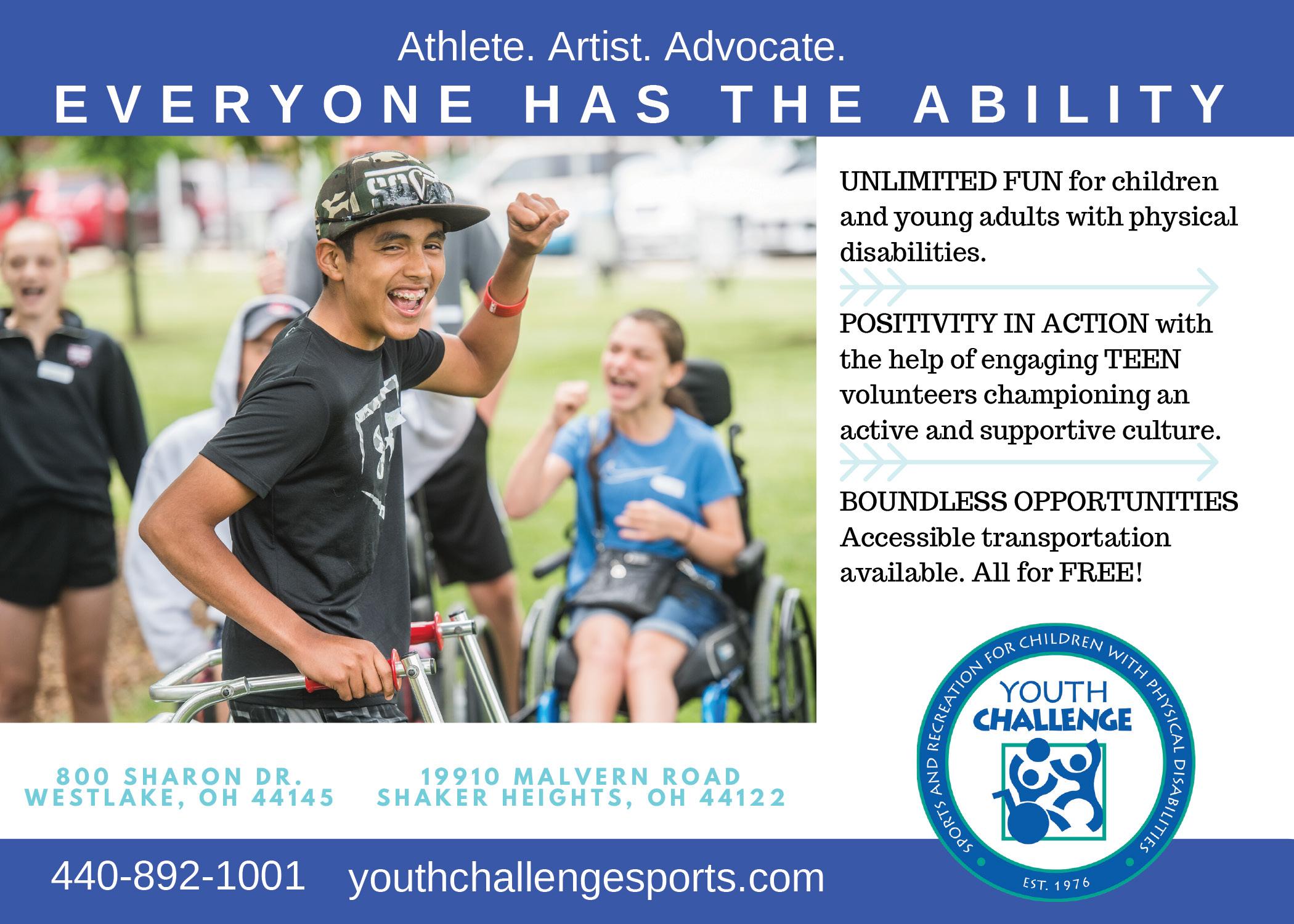
1 minute read
Advocacy is a team sport
Advocacy
Advocacy is a Team Sport
Advertisement
The push for equal rights for people with disabilities started long before The ADA was signed by President George H. W. Bush in 1990. For disabled athletes, adaptive sports represent a platform for equality and opportunity. 1948’s Stoke-Mandeville Games (held at the same time as the London Olympics 35 miles away) provided an opportunity for World War II veterans to showcase their athletic abilities. Trailblazers in adaptive sport never accepted “no” as a response to their desire to play. While physical activity goes hand-in-hand with athletics, the greatest benefit to Youth Challenge team members is social. For many participants, YC offers their first (and sadly, sometimes only) opportunity to be on a team, engage in sport for the love of the game, and compete alongside teammates.
Our world isn’t always constructed for maximum accessibility. While laws like the Americans with Disabilities Act provide guidelines to mitigating barriers — and society becomes more open and inclusive — skills like self-advocacy and resilience still remain critical for navigating social and physical bumps on the trail.
For children with physical By Chris Garr, CEO of Youth Challenge disabilities, understanding how to best adapt to challenges and how to see creative ways to accomplish tasks is a monumental life skill. A child’s willingness to try new things, staff experience with adaptive recreation and art, the team mentality of teen volunteers, and a culture of positivity create a nurturing environment for social, emotional and physical growth and well-being.
With sports and artistic expression as a catalyst for growth, teen volunteers and participants work together to achieve. Some skills — like throwing a ball for a child with muscular dystrophy, orienting a gym space for someone who is blind, or holding a paint brush for someone with cerebral palsy — seem nominal but are crucial building blocks in developing confidence and self-esteem. These traits form the backbone of effective self-advocacy.
Advocacy isn’t only about the individual. For example, Youth Challenge alumni are now fully engaged in advocating for their peers and the broadest possible community of people with disabilities. Taking on issues such as access to voting, inclusivity in the arts and promoting active lifestyles, YC’s care-free kids are now making strides as community leaders.

